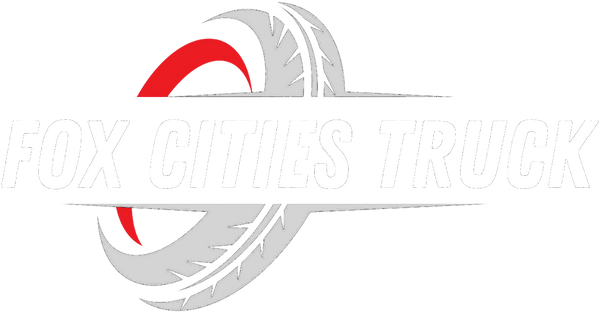
Unusual Vibrations While Driving? These Truck Parts Might Be to Blame
Share
Ever felt your truck shudder like it’s got the hiccups while cruising down the highway? You're not alone—and no, it's not just the road. Odd vibrations while driving can feel unsettling, and worse, they might be warning signs from deep under the hood. Just like how a person might limp when something’s off, your truck "trembles" when it's got issues. So, what’s really causing these vibrations?
Let’s break it down and pinpoint which truck parts could be at fault—and how you can fix them before a minor shake turns into a major headache.
Tires Out of Balance
Let’s start with the most common culprit. Unbalanced tires are like mismatched shoes—things just don’t feel right. If your truck starts to vibrate at certain speeds (especially 55–70 mph), chances are your tires need balancing. It's a quick and inexpensive fix, and it makes a world of difference.
Worn or Damaged Suspension Components
Think of your truck's suspension like your own legs. If a knee is out of whack, the whole body feels off. Worn shocks, struts, or bushings can cause vibrations when driving, particularly over bumps or rough terrain. These parts keep your ride smooth, so when they’re damaged, your whole truck knows it.
Driveshaft Issues
The driveshaft is what transfers power from the engine to the wheels. If it's bent or imbalanced, you might notice vibrations under the floorboard. This is especially noticeable during acceleration. Think of it like a bent ceiling fan—things spin, but not smoothly.
Brake Problems
Feel a shudder when braking? That’s not just your imagination. Warped brake rotors or sticky calipers can cause intense vibrations, especially when slowing down. It’s not just uncomfortable—it can be dangerous. Get those brakes checked!
Engine Mount Failures
Engine mounts are like the cushions keeping your engine snug in place. When one wears out or breaks, you’ll feel it—especially when starting, idling, or accelerating. The vibration feels deeper, almost like a growl coming from the engine bay.
Wheel Bearing Wear and Tear
Wheel bearings allow your wheels to spin freely and smoothly. When they wear out, you’ll hear a growling or grinding noise, accompanied by vibrations. Left unchecked, this can lead to serious safety issues—like a wheel falling off. Yep, really.
Axle Troubles
If your truck has been in a minor accident or hit a deep pothole, bent axles might be to blame for the vibrations. A bent axle spins unevenly, leading to shaking and potential long-term damage if ignored.
Transmission Complications
If your truck vibrates when shifting gears, the issue could lie in the transmission or clutch system. It’s less common, but when it happens, it usually needs professional attention. The key here is to catch it early to avoid expensive repairs.
Unaligned Wheels

Wheel misalignment can cause your truck to drift, your steering wheel to tilt, and—of course—vibrations. It's like walking with one foot slightly turned out. You’ll get where you're going, but it’s going to feel awkward the whole way.
Tire Tread Problems
Uneven tire wear or flat spots on your tires can lead to a thumping or rhythmic shaking. This often happens if your truck sits idle for long periods or if the tires aren't rotated regularly.
Loose or Broken Lug Nuts
Believe it or not, something as simple as loose lug nuts can cause your wheels to shake—or worse, fall off. If you’ve recently had new tires installed, always double-check the lug nuts after driving a few miles.
Exhaust System Vibration
The exhaust system runs along the underside of your truck. If it's loose or damaged, you might feel vibrations from under the truck, especially when idling. It might even sound like a rattle—almost like coins in a tin can.
Unbalanced Load or Cargo
Carrying a poorly distributed load in your truck bed or trailer? That can easily throw off the vehicle’s balance and create noticeable vibrations. Make sure weight is evenly spread and secured.
Poor Road Conditions
Sometimes, it's not the truck—it’s the road. Potholes, washboard roads, and uneven pavement can cause temporary shakes. But if the vibrations linger after the bad road ends, it’s time to inspect your vehicle.
When to See a Mechanic
If you've checked the obvious things—like tire balance and lug nuts—but your truck’s still shaking, it's time for a professional diagnosis. Mechanics have the tools and experience to pinpoint the issue quickly and safely. Don’t wait until it’s too late.
Conclusion
Driving a truck should feel solid and steady—not like you’re in a massage chair on full blast. If you’re experiencing odd vibrations, it’s your truck’s way of saying, “Hey, something’s not right here!” Whether it's a simple tire balance or a more serious drivetrain issue, catching the problem early can save you time, money, and stress.
So next time you feel that shake, rattle, or roll—don’t just crank the radio to cover it up. Listen to your truck. It’s trying to tell you something.
FAQs
1. What are the most common truck vibration causes?
The most common causes include unbalanced tires, worn suspension parts, driveshaft issues, and warped brake rotors.
2. Why does my truck vibrate at high speeds?
Vibrations at high speeds are often due to tire imbalance, wheel misalignment, or axle problems. It’s best to get it inspected immediately.
3. Can vibrations damage my truck over time?
Yes. Persistent vibrations can wear out suspension parts, tires, and even the drivetrain, leading to more expensive repairs down the line.
4. Is it safe to drive a truck that's vibrating?
While it might not seem urgent, driving with vibrations can lead to dangerous situations—especially if the issue is with brakes or suspension.
5. How much does it cost to fix truck vibration causes?
It varies. Tire balancing might cost under $100, while fixing suspension or drivetrain problems could run several hundred dollars or more.
